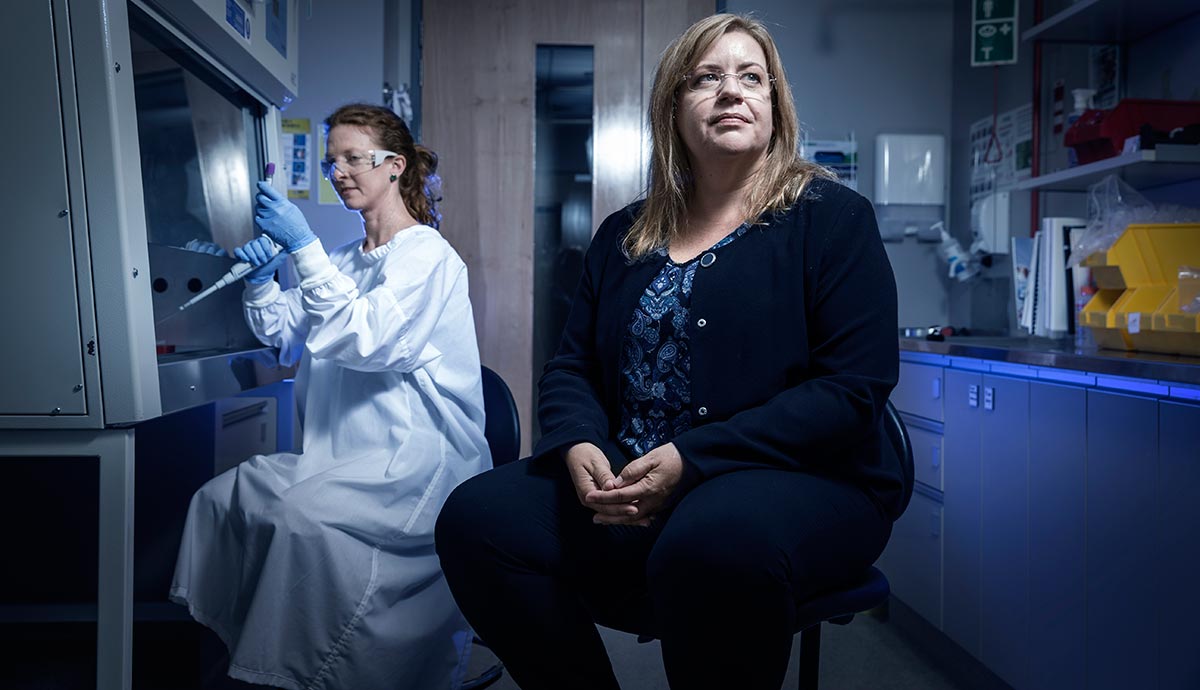April 29, 2016
Tackling a complex problem: developing new models for the treatment of depression
New research could lead to improved preventative strategies and interventions.
Negative thinking, withdrawal from friends and family, and even treatment avoidance are linked to cortisol levels, new research has found.
The preliminary results from UOW’s suggest biological factors connected to depression contribute to these problems to a greater extent than previously believed.
“Most people do not seek treatment for depression, and improved prevention and early intervention are global health priorities,” clinical psychologist Dr Susan Thomas, who is spearheading the investigation at UOW, said.
“Our preliminary results showed high cortisol levels were related to stress, hostility, lack of social support and an unwillingness to seek help.”
Dr Thomas and her team monitored the cortisol levels in 30 clinically depressed people as part of a study at the .
The team is now recruiting 30 additional participants in the Illawarra to further model the complex relationships between mental and physical health in the disease.
Dr Thomas said while depression is a multi-faceted disorder involving complex interactions between biological variables, such as changes in sleep, appetite and weight, and psychosocial variables, including low mood and negative thinking, research tends to focus only on psychosocial factors.
“This doesn’t give the full picture,” Dr Thomas said.
“Our study will address important gaps in knowledge of the biological trajectory to depression and accompanying declines in physical health.”
Dr Thomas and her team will use structural equation modelling to develop accurate models of the complex relationships between individual symptoms of depression and biological and psychosocial variables and their interactions.
This type of modelling has been extensively applied to coronary heart disease to identify points for interventions among numerous lifestyle and physical factors.
In order to conduct the modelling, Dr Thomas and her team will collect plasma, detailed psychometric and lifestyle data and other health indicators, such as BMI, blood pressure, waist circumference, from depressed participants who are not yet receiving treatment.
They will then examine key biomarkers connected to both physical and mental health, including cortisol (the stress hormone), omega-3 fatty acids (essential dietary fats which are linked to mental and physical wellbeing), leptin (a hormone linked to appetite and weight) and oxytocin (a hormone involved in social bonding).
Dr Theresa Larkin, co-researcher and scientist , said: “While these show potential for novel treatment strategies, trials show inconsistent results, likely due to complex interactions between biopsychosocial variables and symptom subtypes in depression.”
“If we develop a better understanding of how these biological factors work together, we will be able to identify risk factors for better preventions and interventions.”
Depression is the leading cause of disability worldwide, with its recent growth being linked to modern dietary changes, stress, loneliness, sleep deprivation and endocrine dysfunction.
“Anti-depressant medications including Selective-Serotonin-Reuptake-Inhibitors are widely used and can be very effective, however responses may be inadequate, and there can be side effects,” Dr Thomas said.
“There are also very effective psychological interventions available including Cognitive-Behavioural Therapy, however many affected individuals do not take them up.
We need to look more intently at preventative strategies and the potential for novel treatments.”
Other members of the team include Dr Peter Leeson, Professor Peter McLennan, Professor Chao Deng and Professor Nagesh Pai.
If you would like to participate in the study, please email Dr Susan Thomas for further information: sthomas@uow.edu.au.
If you are distressed and need to talk to someone at any time, you can call Lifeline Australia, a 24 hour helpline, telephone 13 11 14.
